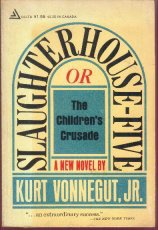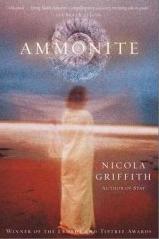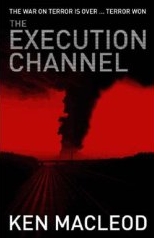Fantasy and science fiction writer and fan Jo Walton had an interesting post up today about whether mainstream, literary fiction can ever be as good as the best science fiction and fantasy novels:
In one section, she states that some well-regarded people think Middlemarch the best novel in the world, ever. I stopped and looked suspiciously at this, turned the idea around a few times, and cautiously considered that in fact perhaps Middlemarch did deserve to be considered in the same company as Lord of the Rings, Cyteen, A Fire Upon the Deep, The Disposessed and Stars in My Pocket Like Grains of Sand. (That grinding sound you hear? F.R. Leavis turning in his grave?) But you know, not really. Because it’s just an awful lot easier if you get the world ready made for you. That’s my main objection to people who say mainstream and fanfic can be as good as original SF. People can juggle two balls awfully well, and Middlemarch and Dark Reflections both do that, in their different ways, about as well as it can be done. But that still can’t really compare to people who are juggling four.
Please do not think this is the usual reverse snobbery of a certain kind of science fiction fan denying that traditional literary values are worthless; what Jo is saying is much more interesting than that. She argues that all other things being equal, writing a good literay novel is easier than writing a sf/fantasy novel, because in the second case the writer has not just to invent the plot and characters and such, but the entire world in which their story takes place and make this world accesible to their readers. Mainstream authors on the other hand do not need to do so, as they can confidently assume their readers has a certain familiarity with the world in which their novels take place.
It’s an interesting, almost seductive theory, but I don’t think it’s right. For I start I think that Jo both underestimates the work mainstream authors have to do to make their settings convincing and overestimates how much science fiction writers need to do. Just like a mainstream author does not need to explain what a car or horse is, neither does a sf writer need to explain how a hyperdrive works or what a positronic brain is. We know already, because we’ve seen these concepts in movies and television series, in cartoons even, not to mention some eighty odd years of science fiction stories. Meanwhile any mainstream author who doesn’t set their story in a setting that is right here and right now will have readers to whom this setting is new, who may not stumble over things like horses and cars, but who will stumble over say the position of women in society.
Take Jane Austen for example, writing in a society in which women almost literally had no rights at all, where women had to marry or face starvation. This is a setting that is almost unimaginable to a modern audience, yet the genius of Austen lies in making clear this essential horror even to us, without writing for us. That is a feat few science fiction authors can emulate.
Mainstream writers also have another set of balls to juggle that sf/fantasy authors need not bother with: making sure that the settings they create “feel real” to their readers. Asimov could imagine Trantor anyway he wanted it to look, because Trantor is not real. But Ian Rankin needs to make sure the Edinburgh of his novels is simular enough to the real one to convince those readers who know it….
So no, I don’t think sf writers juggle more balls than mainstream writers. Just different balls, at times.


